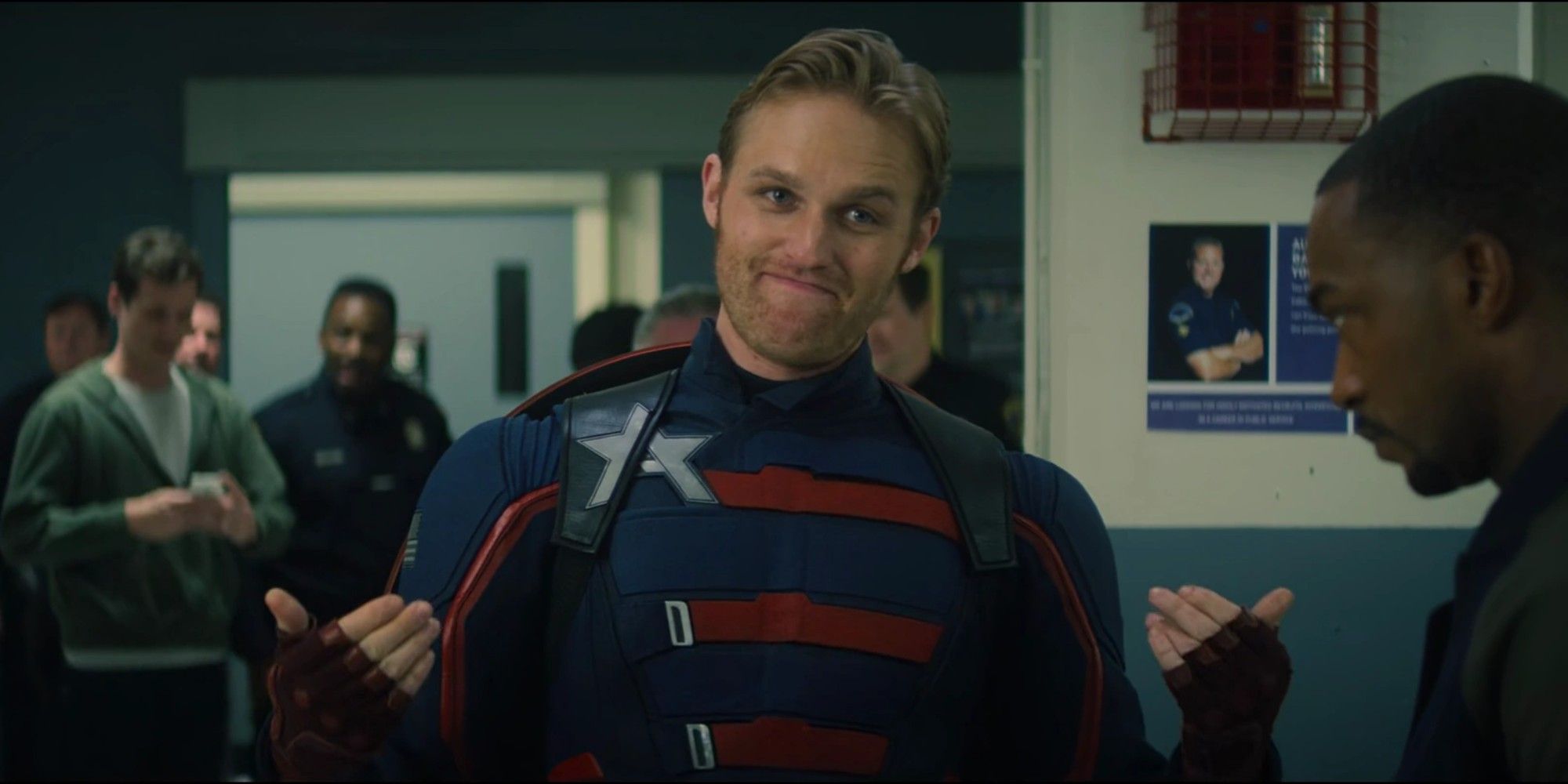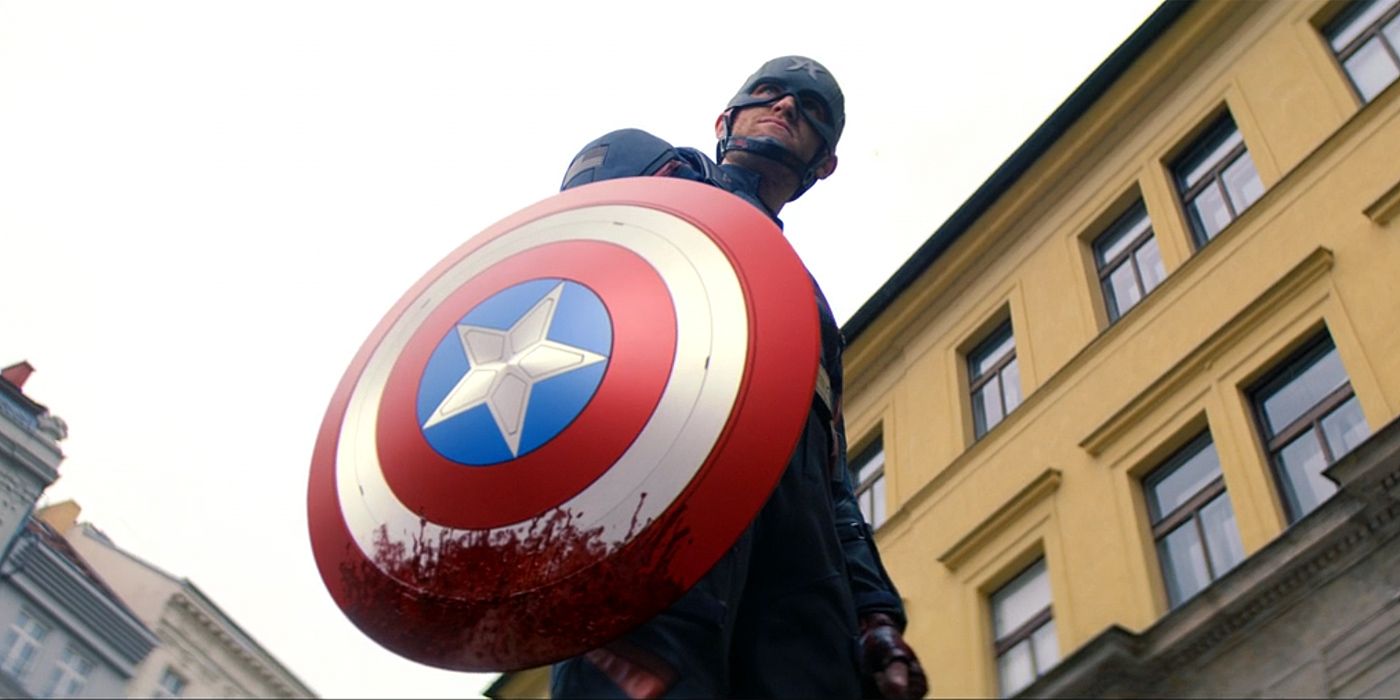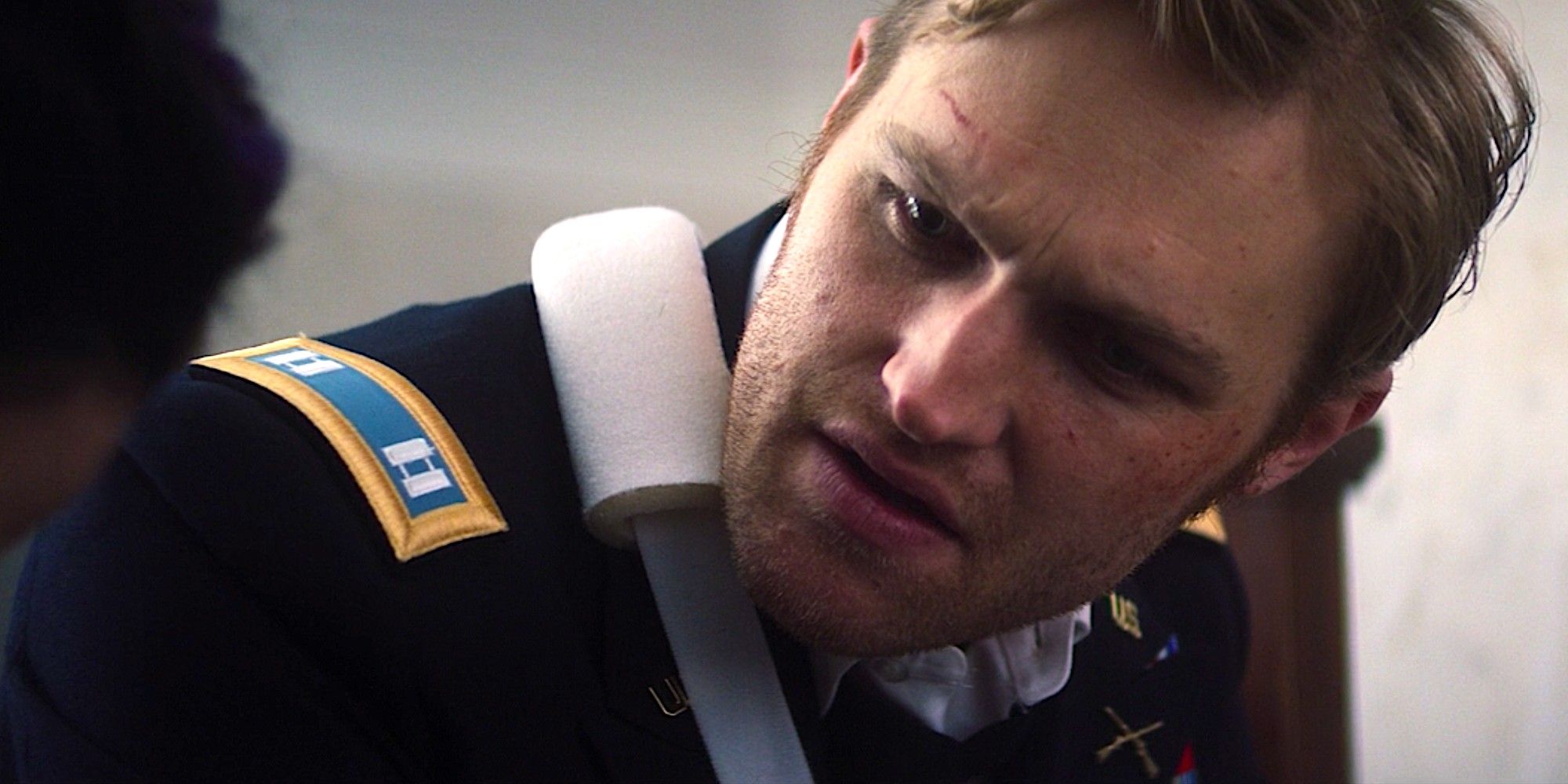WARNING: The following contains spoilers for The Falcon and the Winter Soldier finale, "One World, One People," now streaming on Disney+.
The finale of The Falcon and the Winter Soldier, “One World, One People,” excitingly concluded many of the series’ storylines while leaving some open for future Marvel Cinematic Universe installments. However, an area the episode stumbles with is the redemption of John Walker. Wyatt Russell has become a pivotal figure in the show, with his conflicted and frustrated performance totally selling Walker’s inferiority complex and egotistical tailspin. But Russell sold such developments too well, so much so that his heroic actions and “redemption” in “One World, One People” felt rather rushed.
Walker began as the government’s hand-picked replacement for Captain America, and in early episodes, appeared down-to-earth about the weight and responsibility that comes with that title. But slowly, Walker started to bristle against Sam and Bucky’s lack of cooperation. While they wanted to compromise and negotiate with the Flag-Smashers, Walker started throwing his weight around and became agitated over being undervalued, including when he was beaten by the Wakandan Dora Milaje who “weren’t even super-soldiers.” This gruesomely climaxed in “The Whole World is Watching,” when the Flag-Smashers killed Walker's partner Battlestar, and in revenge, he chased down one of them in a public square and beat him to death with his shield.
Subsequently, in “Truth,” Walker was apprehended, given an “other than honorable discharge” and stripped of the Captain America title. But Walker was not remorseful over his actions, instead having his frustrations further curdle inside of him. That episode's post-credits scene then showed Walker forging his own shield, and he emerges in “One World, One People” out for revenge against Karli Morgenthau (Erin Kellyman) and the Flag-Smashers.
Yet, while initially out for blood, Walker ultimately redeems himself. As a van carrying GRC (Global Repatriations Committee) senators is falling off a ledge, he drops his discount shield and grabs the van, even as Flag-Smashers hail down on him. It appears Walker has learned the lesson from Steve Rogers (Chris Evans) he’d earlier misunderstood about jumping on the grenade; that you should nobly sacrifice yourself for others instead of acting for yourself.
However, the trouble is this turn feels unearned, especially since the show gives little indication of Walker’s internal change of motivations. Last episode, Walker strongly disavowed the government during his military trial and showed little regret over his actions, with Russell convincingly displaying his unhinged ravings over his unfair treatment. Therefore, Walker’s last-second reversal into mental stability feels like a plot-mandated beat instead of organic character growth.
Worse is how Walker is treated by our heroes. In “Truth,” Sam and Bucky brutally battled Walker over his public execution of the Flag-Smasher, leaving him with a broken arm. Now, in the finale, the three team up without any discussion, and Bucky and Walker even literally pat each other on the back as they round up the Flag-Smashers. Given how public Walker’s rage-fuelled murder of the Flag-Smasher was, one would think he would still have much to atone for.
This isn’t to say Walker doesn’t deserve any redemption. As previously mentioned, Russell gives a nuanced performance that lets the audience see where Walker comes from, even as he spirals out of control. In the comics, Walker has fluctuated between being Captain America himself, a supervillain and an anti-hero, meaning there’s precedent for him being morally grey. His redemption just seems somewhat compressed in Falcon and the Winter Soldier, back-tracking from Walker’s past actions without accounting for them. Perhaps this storyline would’ve worked better with more time, showing Walker’s “downfall” contained to one season, before revealing his path to redemption in the next one.
In fairness, it may be too soon to say if Walker’s really “redeemed,” or if saving the senators was simply a rare (or even cynically coordinated) moment of clarity. “One World, One People” ends with Julia Louis-Dreyfus’ “Val” giving Walker his new U.S. Agent suit and recruiting him to her shadowy black-ops team. Walker and his wife may feel as if he’s “back” and morally redeemed by his position, but clearly, this role is morally ambiguous. Walker’s moral journey is, as with everyone, never-ending. It’s just a shame that Falcon and the Winter Soldier had him so convincingly fall down one direction, as it makes his steps backward come off as rushed.
Directed by Kari Skogland, The Falcon and the Winter Soldier stars Anthony Mackie, Sebastian Stan, Emily VanCamp, Wyatt Russell, Noah Mills, Carl Lumbly and Daniel Brühl. The entire first season is available to stream on Disney+.



